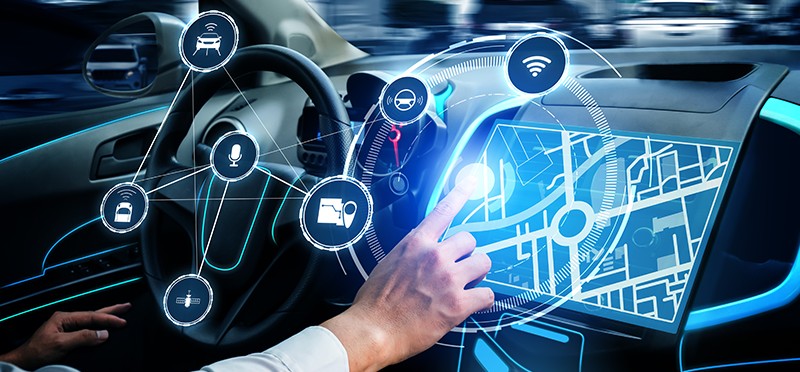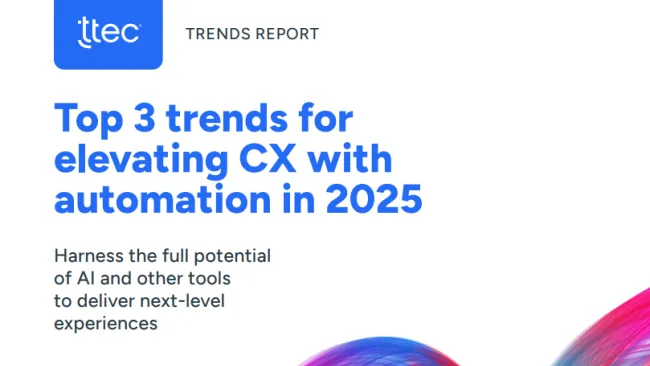The automotive industry has experienced a significant transformation in recent years, driven by the integrative force of AI. AI is playing a pivotal role in elevating the customer experience (CX) across every touchpoint, redefining how cars are designed, built, and embraced by consumers.
There are many ways AI is reshaping the automotive landscape, with a laser focus on customer-centric innovation – and many opportunities for brands to harness its potential.
Craft personalized experiences with AI, data
Beyond mere efficiency gains, AI is a catalyst for a more personalized, immersive, and streamlined customer experience. From the hallowed halls of dealerships to the manufacturing floors of automakers, AI is a guiding force that transcends traditional boundaries.
For car dealerships and manufacturers, the integration of AI is not just a technological leap but a strategic imperative to enhance the customer journey. With AI-driven analytics, dealerships can make great use of all the data they’re collecting to offer unparalleled customer service, ensuring very interaction is infused with personalization, responsiveness, and a deep understanding of individual preferences.
For manufacturers, AI offers ways to curate vehicles that align seamlessly with evolving customer expectations, placing safety, comfort, and satisfaction at the forefront.
But AI is only as strong as the data informing it, so it’s crucial for automotive brands to invest in data analytics and data annotation.
Keep the customer journey at the forefront
Advances in AI technology are exciting and have the potential to transform CX, but resist the urge to implement AI just to say you’ve done it. To deliver the results you need, AI must be implemented thoughtfully, in tandem with a human touch, and always with the customer in mind.
When evaluating where AI can best benefit your brand, take a close look at your customer journey and focus AI efforts on relieving pain points; that’s where you’ll see the greatest return on your investment, in the form of higher CSAT, greater customer loyalty, shorter handle times, and other benefits.
Once you use data to understand your customers’ journey – what they want from you, what delights them, and what frustrates them – you can maximize AI’s impact. Here are just a few ways:
- Elevated safety measures: AI-powered advanced driver assistance systems (ADAS) give drivers and passengers a heightened sense of safety on the roads, with features like automatic emergency braking and lane-keeping assist.
- Autonomous driving: The marriage of AI technologies and self-driving cars promises a future with fewer errors, streamlined traffic flow, and increased accessibility, ultimately enhancing the overall driving experience.
- Efficiency redefined: AI-powered tools can help drivers optimize traffic flow, minimize or avoid congestion, and reduce fuel consumption, all of which leads to a more efficient and eco-conscious driving experience.
AI’s revolutionizing roadside assistance, too
Roadside assistance is a lifeline for drivers during a very stressful time in their lives, when they’re experiencing unexpected breakdowns or accidents. Traditionally reliant on manual processes, this service often led to delays and limited customer satisfaction. But AI is revolutionizing this aspect of the auto industry, too.
AI-powered algorithms have redefined how roadside assistance providers manage service requests. By analyzing factors like location, vehicle type, and service needs, AI systems can dispatch the nearest and most suitable service provider, which reduces response times. And AI can perform triage and assess the severity of the situation based on vehicle data or customer descriptions, which saves time, minimizes unnecessary service calls, and optimizes resource allocation.
AI’s also a gamechanger when it comes to predictive maintenance and proactive alerts. It can leverage vehicle data (like performance metrics, maintenance records, and historical patterns) to predict and prevent potential breakdowns. This proactive approach minimizes the likelihood of roadside emergencies, improves safety, and enhances the overall driving experience.
Companies can also improve roadside assistance CX through enhanced data analysis. Use AI to uncover patterns and insights you can use to optimize operations, identify bottlenecks, and proactively remove friction from the customer journey.
Where it makes sense, use AI-powered chatbots and virtual assistances so put customers in the drivers seat of their own experience. These tools let them interact with your contact center in their preferred channel, at their preferred time. And with the right self-service tools you can help them get quick resolutions on their own to simple inquiries quickly and easily.
Find the right partner to shift your CX into overdrive
The future of the automotive industry is being spurred by customer-centric innovation, and AI is at its core. AI doesn’t represent merely a technological evolution for the industry, but a renaissance of customer experience. Every data point, every algorithm, and every innovation is intricately woven into a tapestry of customer satisfaction, loyalty, and delight.
By embracing AI-powered solutions, car dealerships and manufacturers can forge deeper connections with customers, enhance safety measures, and redefine efficiency on the roads – but it can be hard to know where to start. Working with a partner that has expertise in AI, CX, and the auto industry can help.
The road ahead is paved with unparalleled customer experiences, where innovation and forward-thinking continue will shape the future of the automotive industry. Are you ready to pioneer this customer-centric transformation and unlock AI’s true potential?

















